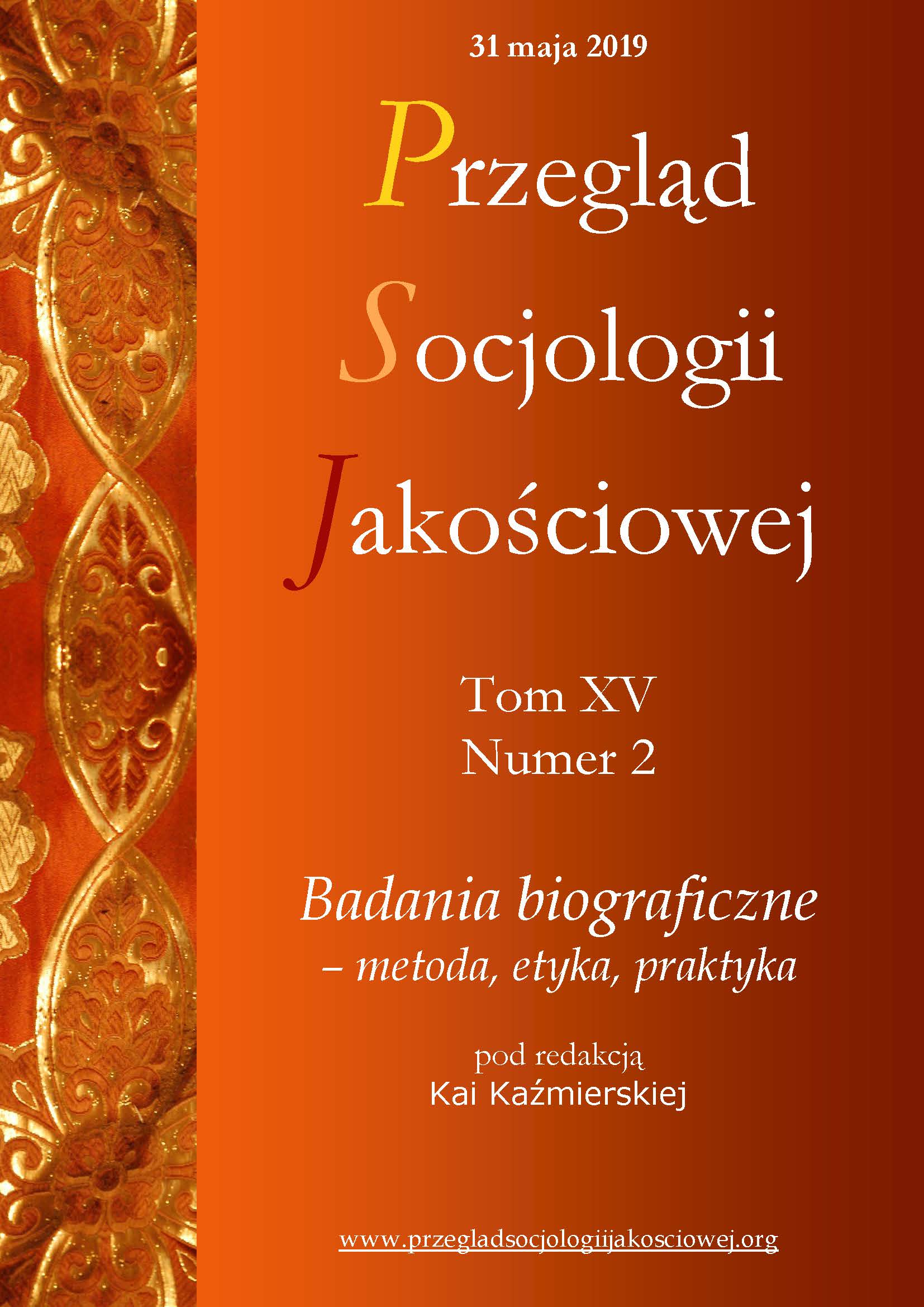O czym mówi Sean? Zapis panelu dyskusyjnego o sztuce, nauce i etyce
DOI:
https://doi.org/10.18778/1733-8069.15.2.14Pobrania
Bibliografia
Abend Gabriel (2013) What the Science of Morality Doesn’t Say About Morality. „Philosophy of the Social Sciences”, no. 43, vol. 2, s. 157–200.
Google Scholar
Abend Gabriel (2014) The Moral Background: An Inquiry into the History of Business Ethics. New Jersey: Princeton University Press.
Google Scholar
Abend Gabriel (2019) Moral decisionism and its discontents. „Journal for the Theory of Social Behaviour”, no. 49, vol. 1, s. 59–83.
Google Scholar
Barrett Lisa Feldman (2017) How Emotions Are Made: The Secret Life of the Brain. Boston, New York: Mariner Books.
Google Scholar
Brockman John (2013) Thinking: The New Science of Decision-Making, Problem-Solving, and Prediction. New York, London, Toronto, Sydney, New Delhi, Auckland: Harper Perennia.
Google Scholar
Cathcart Thomas (2014) Dylemat wagonika. Przełożyła Katarzyna Bażyńska-Chojnacka. Warszawa: PWN.
Google Scholar
Edmonds David (2014) Would You Kill the Fat Man?: The Trolley Problem and What Your Answer Tells Us about Right and Wrong. New Jersey: Princeton University Press.
Google Scholar
Greene Joshua, Haidt Jonathan (2002) How (and where) does moral judgment work? „Trends in Cognitive Sciences”, vol. 6, s. 517–523.
Google Scholar
Haidt Jonathan (2014) Prawy umysł. Dlaczego dobrych ludzi dzieli religia i polityka? Przełożyła Agnieszka Nowak-Młynikowska. Sopot: Smak Słowa.
Google Scholar
Małkowicz Zofia (2017) Nie tylko „art and science”: czyli jak myśleć o praktykach łączących sztukę i naukę?: Propozycja nowej typologii. „Kultura i Społeczeństwo”, nr 1, s. 175–190.
Google Scholar
Perry Gina (2013) Behind the Shock Machine: The Untold Story of the Notorious Milgram Psychology Experiments. New York: The New Press.
Google Scholar
Prinz Jesse (2007) The Emotional Construction of Morals. Oxford: OUP Oxford.
Google Scholar
Pustoła Wojciech i in.(2019) Kiedy teatr nie tylko gra i/ale bada [w:] Waldemar Rapior, red., Bezkarnie. Etyka w teatrze. Poznań: Stowarzyszenie Scena Robocza, Stowarzyszenie Czasu Kultury, s. 169–182.
Google Scholar
Rapior Waldemar, Kosiński Dariusz (2018) Wiedza z działania, wiedza w działaniu. O relacjach sztuki i nauki. „Czas Kultury” [dostęp 3 kwietnia 2019 r.]. Dostępny w Internecie: http://czaskultury.pl/artykuly/wiedza-z-dzialania-wiedza-w-dzialaniu-o-relacjach-sztuki-i-nauki/.
Google Scholar
Rapior Waldemar (2019) Pożytki z deprowincjalizacji [w:] Waldemar Rapior, red., Bezkarnie. Etyka w teatrze. Poznań: Stowarzyszenie Scena Robocza, Stowarzyszenie Czasu Kultury, s. 185–199.
Google Scholar
Sormani Philippe, Carbone Guelfo, Gisler Priska, eds., (2018) Practicing Art/Science. Experiments in an Emerging Field. London, New York: Routledge.
Google Scholar
Turner Stephen (1994) The Social Theory of Practices: Tradition, Tacit Knowledge, and Presuppositions. Chicago: University of Chicago Press.
Google Scholar
Turner Stephen (2014) Understanding the Tacit. New York: Routledge.
Google Scholar
Pobrania
Opublikowane
Jak cytować
Numer
Dział
Licencja

Utwór dostępny jest na licencji Creative Commons Uznanie autorstwa – Użycie niekomercyjne – Bez utworów zależnych 4.0 Międzynarodowe.














